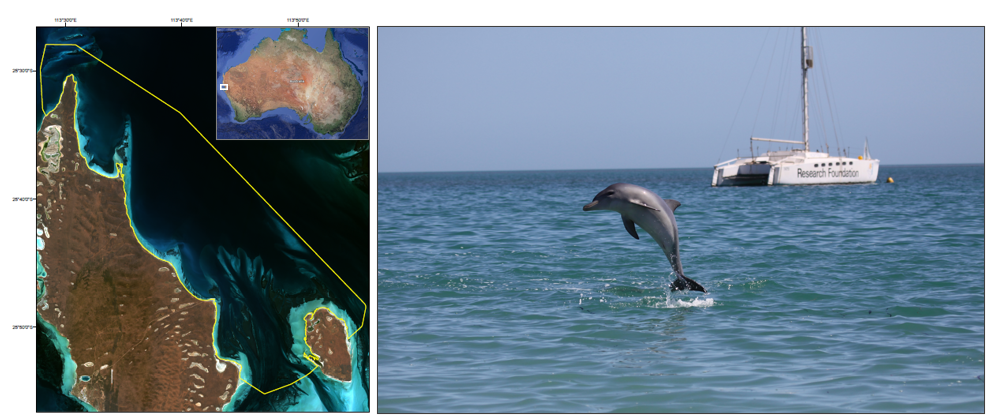Research

Much of the lab’s research leverages data from the Shark Bay Dolphin Project, a long-term study of Indo-Pacific bottlenose dolphins in Shark Bay, Australia ongoing since the 1980s. We also collaborate locally with the Galveston Bay Dolphin Research Program.
Mechanisms of inheritance

Estimating the heritability of traits is fundamental to predicting their adaptive potential. Non-genetic mechanisms of inheritance are now widely integrated into our conceptual models of evolution, and empirical work is rapidly validating their critical role in shaping species’ traits. Long-lived species are prone to exhibiting non-genetic mechanisms of inheritance due to long periods of parental investment (parental effects), high mobility and niche construction, and complex social and cultural transmission. Our lab takes advantage of a study with up to 5 generations of behavioral and 4 generations of genetic data to investigate how behavioral traits are transmitted.
Kinship and social dynamics

Kinship plays a fundamental role in the evolution of social systems and is a key driver of group living. The quantity and quality of an individual’s social relationships can have significant fitness effects, and individuals often preferentially associate with close relatives, behavior which amplifies such benefits via inclusive fitness. We take advantage of a social system where females have both strong ties with kin and non-kin to investigate the relative importance of inclusive fitness in driving long-term social bonds, as well as the consequences these bonds have on social network structure.
Individual and population-level responses to climate change

How animals respond and adapt to changes in climate and extreme climate events is one of the most urgent problems in conservation biology. For long-lived, slow reproducing species, it can take decades to detect significant fitness effects before and after environmental change. Longitudinal studies therefore represent crucial opportunities to investigate climate impacts on basic biological phenomena such as ranging, phenology, life history, and fitness. Shark Bay, Australia is a unique ecosystem historically characterized by >4000 km2 of seagrass beds, making it one of the largest seagrass systems on earth. In the austral summer of 2010-2011, Shark Bay experienced the largest marine heatwave on record, with temperatures rising to over 4°C higher than normal summer temperatures for a two-month period. Our lab is engaged in work leveraging both 20+ years of baseline data as well as data from a decade post-heatwave to use as a natural experiment on behavioral responses to extreme environmental shifts.
Photo Credit: Caitlin Karniski / Shark Bay Dolphin Project